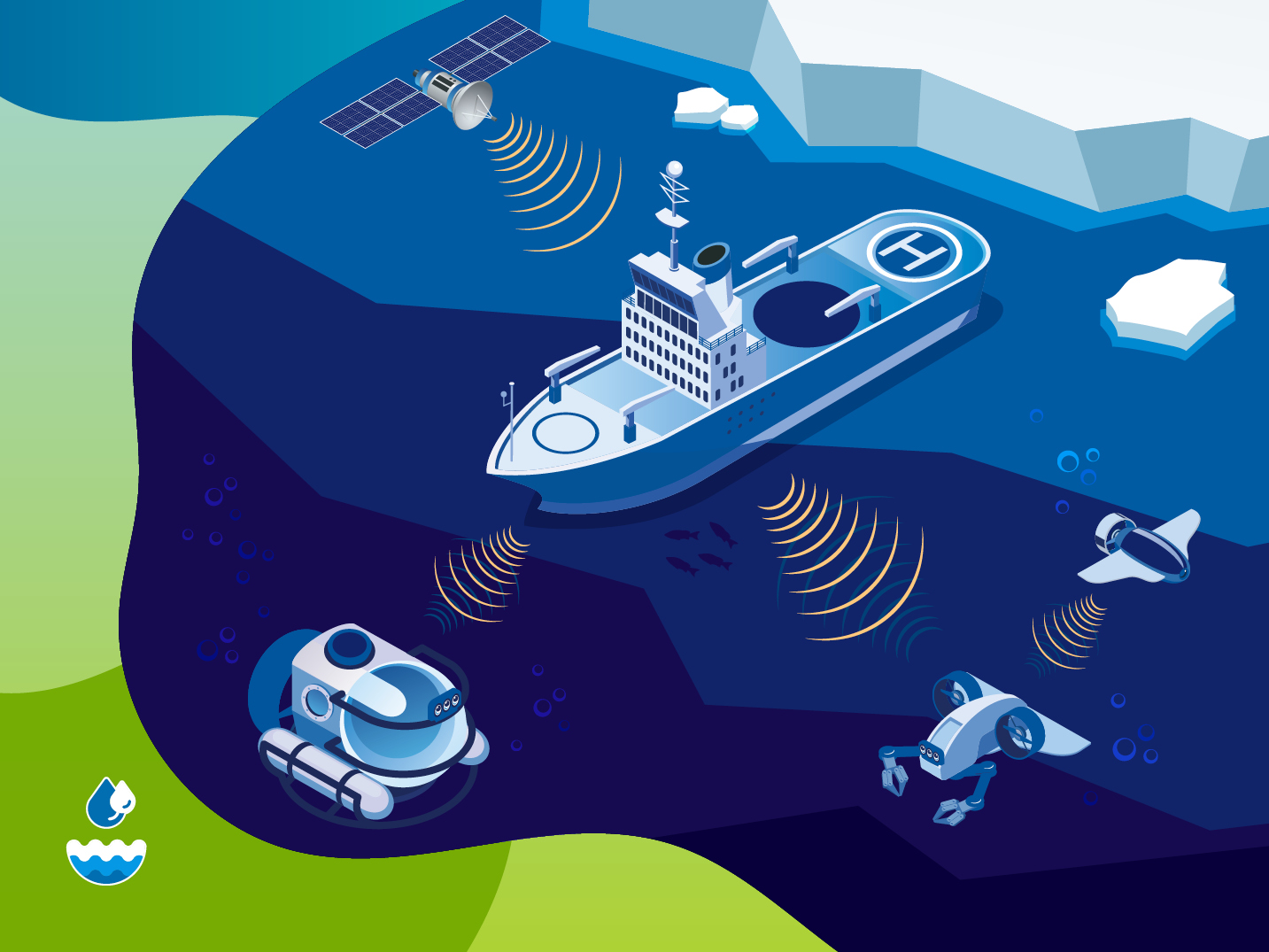Diving deeper: Propelling ocean knowledge and its sustainable management
Sustainable management of the global ocean is key to successful biodiversity conservation, climate action, food security, renewable energy, and human health. Monitoring and protecting marine habitats are therefore essential to both human well-being and the world we live in, yet the majority of the global ocean is currently poorly observed or unexplored. To fill these gaps in scientific knowledge, understand the present state of the ocean, and predict the conditions affecting it in the future requires accurate, reliable data on the relationship between climate change, biodiversity, and ecosystem services.
Building a digital replica of the ocean
The goal of the EU Mission Restore our Ocean and Waters is to protect and bring back the health of our ocean and waters by 2030 through research and innovation, stakeholder engagement, including with citizens, and invest in the blue economy. Under the Mission, the EU is developing the European Digital Twin of the Ocean (European DTO), a digital replica to help scientists understand and predict the impact of human activities and climate change. This powerful tool collates data from European assets like the Marine Observation and Data Network (EMODnet) and the Copernicus Marine Environment Monitoring Service (CMEMS) programmes and feeds it state-of-the-art computer models to simulate the ocean under different scenarios. By building a digital replica, researchers can study the ocean’s past, present, and future, which can help inform EU policy and foster new connections between science, business and society. In addition, the European DTO is bringing together researchers from different fields into a single cutting-edge virtual environment. Connecting the physical, biological, and socioeconomic dimensions of the ocean will revolutionise work practices and help make informed, science-based decisions.
Road to sustainable management
This Pack shows how ocean observing is essential for the sustainable management of the ocean. It also indicates how the European DTO will make observation data more widely available, to facilitate its transformation into actionable knowledge for ocean communities. The projects featured address the entire knowledge value chain, including sensing technologies and platforms, ocean observing systems, data sharing and services, and the European DTO. Their results cover ocean observing from the physical, geochemical, and biological perspectives, and address both coastal and ocean zones, in addition to highlighting the role of the marine research infrastructures.
Focus on EU-funded research
The work outlined in the pack contributes to sustainable ocean management in a variety of ways. The TechOceanS initiative created remote sensing technologies to capture important ocean data. NautilOS developed a new generation of cost-effective sensors and samplers. Remotely operated vehicles (ROVs) and autonomous underwater vehicles (AUVs) were added to the European research fleet under Eurofleetplus. GROOM II designed a sustainable marine research network at European level that increases accessibility to underwater gliders. Scientists can now build more accurate weather models and better understand long-term climate trends thanks to the work of Euro-ARGO RISE. EuroSea upgraded and integrated European national ocean observation and forecasting systems into an international network. JERICO-S3 improved observation of European coastal ecosystems and cooperation with other European research infrastructures. The AtlantECO project sought to unravel the mysteries and dynamics of oceanic ecosystems, while iAtlantic investigated factors controlling the distribution, stability and vulnerability of deep-sea ecosystems. MaCoBioS explored the ability of nature-based solutions to mitigate human impacts on marine and coastal ecosystems. Finally, So-CHIC used a combination of observation and modelling to study heat and carbon budgets in the Southern Ocean. The Blue-Cloud 2026 project connects data on the marine and coastal environment with the Blue Economy. Meanwhile, EDITO-Infra is building the EU Public Infrastructure backbone for the European DTO. This will be the foundation where all the aforementioned and other research outputs can come together and support effective marine management through the development of the EU Digital Twin Ocean.



